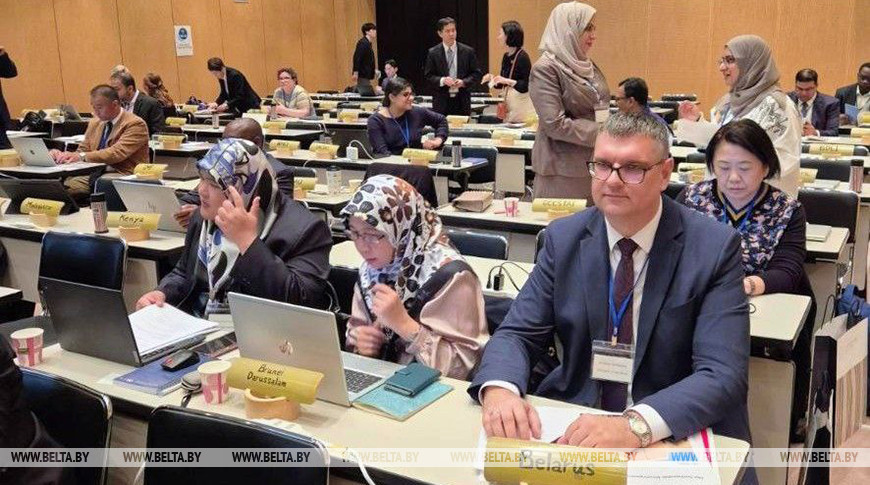
Photo courtesy of Belstat
MINSK, 11 November (BelTA) – The 16th meeting of the Inter‑Agency and Expert Group on Sustainable Development Goal Indicators (IAEG-SDGs) was held in Kitakyushu, Japan. Belarus’ experience in achieving the SDGs was presented there by Deputy Chairman of Belarus’ National Statistical Committee (Belstat) Aleksei Yarkovets, BelTA learned from the press service of Belstat.
The agenda included global issues related to the effective implementation of the 2030 Agenda: from monitoring and reporting on the SDGs at various levels to the use of artificial intelligence and data innovation to accelerate progress, as well as strengthening partnerships in this field. Particular attention was paid to data for climate and environmental action.
During thematic discussions, Aleksei Yarkovets shared key achievements and strategic approaches of Belarus in SDG monitoring. He emphasized that the systematic work of Belstat and national government bodies have produced impressive results in ensuring information transparency. “Data availability stands at 95%, and for 9 out of 17 SDGs we have achieved 100% data availability,” he noted.
Presenting Belarus’ experience in SDG localization, the Belstat representative highlighted the country’s unique regional approach. “Belarus’ National Statistical Committee has developed a regional list of SDG indicators reflecting national priorities, supplemented by indicators that take into account the specific development of individual regions. It includes 138 indicators,” he explained.
Aleksei Yarkovets added that the regional list is not only harmonized with the national one. Its indicators allow for disaggregation not only by regions and the city of Minsk, but also across all 118 districts of the country.
The participation of Belstat representatives underscores Belarus’ commitment to achieving the global goals and the country’s active role in the international dialogue on sustainable development.
